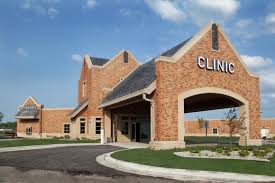The Importance of Emergency Response in Thief River Falls
Thief River Falls, a vibrant community nestled in the heart of Minnesota, understands the critical role that emergency response plays in ensuring the safety and well-being of its residents. With a dedicated team of first responders and a robust infrastructure in place, the city is prepared to handle any crisis that may arise.
Swift Action Saves Lives
When emergencies strike, whether it be a medical issue, fire, or natural disaster, every second counts. The swift response of emergency services can mean the difference between life and death. In Thief River Falls, paramedics, firefighters, and law enforcement officers are trained to react promptly and efficiently to any situation.
Collaboration is Key
The success of emergency response efforts in Thief River Falls can be attributed to the seamless collaboration between various agencies. Police departments work hand-in-hand with fire departments and medical personnel to ensure a coordinated response. This teamwork ensures that resources are utilized effectively and that help reaches those in need swiftly.
Community Preparedness
While professional responders play a crucial role in emergency situations, community preparedness is equally important. Residents of Thief River Falls are encouraged to have emergency plans in place for their households and businesses. Knowing what to do in an emergency can help mitigate risks and ensure a faster recovery process.
A Call for Vigilance
As a community, it is essential for residents to remain vigilant and report any suspicious activities or potential hazards promptly. By staying informed and alert, individuals can contribute to maintaining the overall safety of Thief River Falls.
In Conclusion
Emergency response in Thief River Falls is not just a service; it is a commitment to protecting lives and property. Through preparedness, collaboration, and swift action, the city stands ready to face any challenge that comes its way. Together, we can ensure that our community remains safe and resilient in the face of adversity.
Key Information on Emergency Response in Thief River Falls: Essential FAQs
- What number should I call in case of an emergency in Thief River Falls?
- How quickly do emergency responders typically arrive at the scene in Thief River Falls?
- What types of emergencies are most common in Thief River Falls?
- Are there any specific evacuation routes or shelters designated for emergencies in Thief River Falls?
- How can residents of Thief River Falls stay informed about ongoing emergencies and receive alerts?
What number should I call in case of an emergency in Thief River Falls?
In case of an emergency in Thief River Falls, it is crucial to dial 911 immediately. This universal emergency number connects you to the appropriate authorities, including police, fire, or medical services, who are trained to respond swiftly and effectively to any crisis situation. By calling 911, you can ensure that help is on the way without delay, emphasizing the importance of quick action in times of need.
How quickly do emergency responders typically arrive at the scene in Thief River Falls?
In Thief River Falls, the response time of emergency responders varies depending on the nature and location of the incident. Generally, emergency services in Thief River Falls are well-equipped and trained to arrive at the scene swiftly. For critical emergencies such as medical crises or fires in highly populated areas, responders aim to reach the scene within minutes to provide immediate assistance. However, for incidents in more remote or rural areas, response times may be slightly longer due to travel distances. Overall, the priority of emergency responders in Thief River Falls is to arrive promptly and efficiently to ensure the safety and well-being of those in need.
What types of emergencies are most common in Thief River Falls?
In Thief River Falls, certain types of emergencies are more prevalent than others. Common emergencies in the area include medical incidents such as heart attacks, accidents, and injuries requiring immediate attention. Additionally, fire-related emergencies, especially during winter months, due to heating systems or cooking mishaps, are not uncommon. Severe weather events like blizzards and flooding also pose significant risks to the community. By understanding the most common types of emergencies in Thief River Falls, residents can better prepare and respond effectively to ensure the safety and well-being of themselves and their neighbors.
Are there any specific evacuation routes or shelters designated for emergencies in Thief River Falls?
In response to the frequently asked question about specific evacuation routes and designated shelters for emergencies in Thief River Falls, the city has established comprehensive plans to ensure the safety of its residents. In the event of an emergency requiring evacuation, designated routes have been identified to guide individuals to safety efficiently. Additionally, various shelters across the city have been designated to provide temporary refuge and assistance to those in need during times of crisis. These measures are part of Thief River Falls’ proactive approach to emergency preparedness, aiming to protect and support the community in times of need.
How can residents of Thief River Falls stay informed about ongoing emergencies and receive alerts?
To stay informed about ongoing emergencies and receive alerts in Thief River Falls, residents can utilize various communication channels provided by local authorities. One common method is to sign up for emergency notification systems that send alerts via text messages, phone calls, or emails. Additionally, following official social media accounts of the city’s police department and emergency services can provide real-time updates on unfolding situations. It is also recommended to tune in to local radio stations or television broadcasts for emergency announcements. By staying connected through these channels, residents can proactively receive crucial information during emergencies and take necessary precautions to ensure their safety and well-being.

